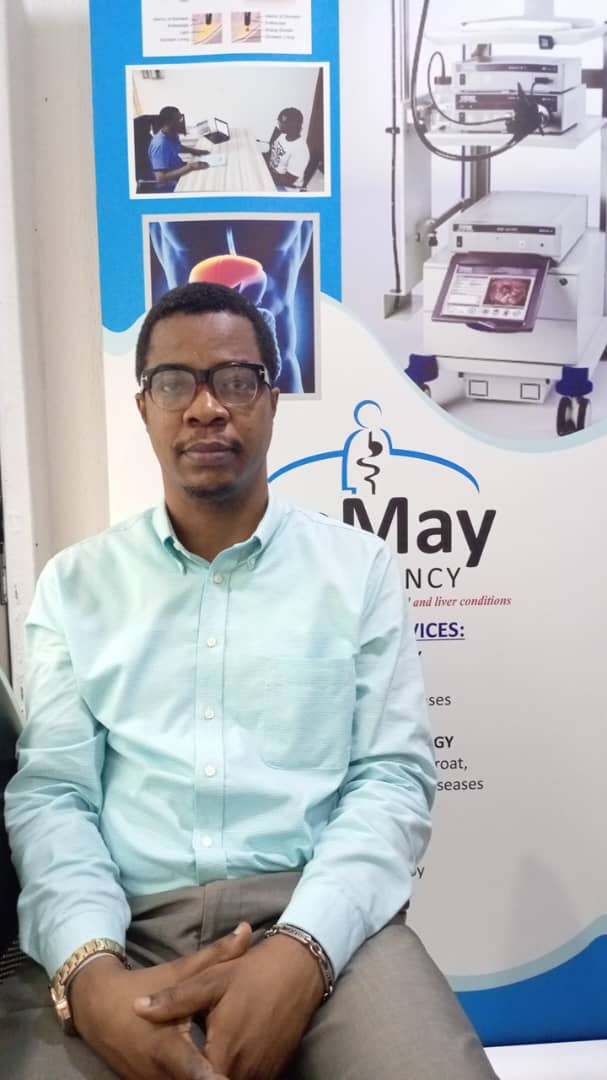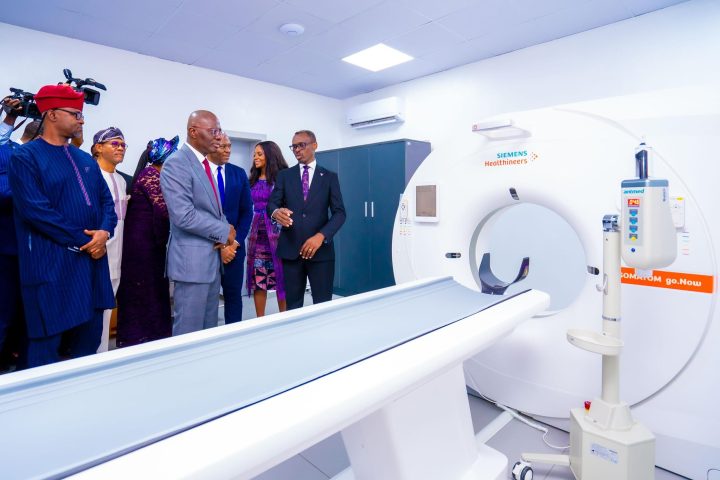Cancer arising from the colon and rectum (colorectal cancer, aka ‘CRC’) is a truly devastating, killer. Current global estimates put it as the second commonest cause of cancer-related deaths and the third most frequently diagnosed cancer. In Nigeria, its effect is no less ruinous as the nation was recently reminded by the untimely death of the beloved Ibadan-based comedian Oluwatobi Owomoyela, popularly known as “Peteru” at the tender age of 35 years. He is only one of a list of Nigerian celebrity casualties- the most prominent perhaps being Sunny Okosun, who, until CRC struck, was a household-name entertainer across the nation.
READ ALSO:Radiofrequency Surgery For Treatment Of Anal Cancer And A Vaccine First For Bees
Join our WhatsApp ChannelThe ability of the disease to kill is profound if discovered in the late stages (stages III and IV) particularly in a resource-limited countries like Nigeria. But the story does not end there as CRC is highly preventable and treatable, especially when detected in its early stages. Thus, identifying pre-cancerous changes in the colon and detecting cancer at an early, more treatable stage is the goal of CRC screening in Nigeria.
What exactly is colorectal cancer?
Usually, the growth and development of the cells of the colon (otherwise known as the large intestine or large bowel) are programmed, orderly and regulated. Cancer is diagnosed when abnormally and uncontrolled growing colonic cells are present in the colon. This results in abnormally clumped-up cells being present or unregulated growths that burrow into the walls of the intestine. The development of these dangerous growths is usually gradual and their level of growth at detection is what determines the cancer “stage”. Ominously, these cancer cells, if unchecked, have the capacity to advance so much as to disrupt normal intestinal function and, in the latter stages, also spread to involve other organs.
A sad note must be made that it is thought that the CRC in us black Africans develops somewhat more aggressively than that in Caucasians- which accounts for the higher proportion of young black Africans being affected by the disease. Nonetheless, there is a window of opportunity for all CRC-predecessor changes and early CRC itself to be detected and thus provide a better chance at ensuring life and restoring health. Screening exploits this window of detection.
Benefits of Early Detection
- Early Detection: CRC screening allows for the identification of cancer in its early stages when treatment is more effective and has a higher chance of success. Studies show that individuals who undergo regular screenings have a significantly lower risk of dying from CRC.
B0. Prevention: Some screening methods, such as colonoscopy, allow for the removal of precancerous growths. Since these abnormalities result in CRC, extricating them prevents CRC altogether.
- Cost-Effectiveness: Although the upfront costs of any of these CRC screening tools might appear significant, they are outweighed by the long-term savings associated with early detection and prevention. Of worrisome concern while weighing this cost-risk is that oftentimes the monumental loss associated with the loss of health and life of the affected young Nigerians reacting advanced-stage colorectal cancer is far more expensive and has a lower chance of success than early intervention.
Available Screening Methods
- Colonoscopy: This procedure involves a tube being inserted into the anus from which the entire colon can then be inspected for abnormalities with a camera. It allows for the detection and removal of growths (“polyps”) and the collection of samples from whatever abnormalities for further analysis.
It is with delight that I note that there has been a gradual uptake of this most useful tool in Nigeria since my training days in the late 2000s. Though the levels of this nascent desirable change are very low for our population of 250 million, it appears that there is a gradual increment in the numbers of our citizens that benefit from this.
- Fecal Immunochemical Test (FIT)/Fecal Occult Blood Test (FOBT): FIT is a non-invasive test that detects hidden blood in the stool, which can be an early sign of colorectal cancer. It is a cost-effective option that can be performed at home. Presently, not so many labs in the country can perform this test. So oftentimes, we are made to adopt the less specific FOBT test for screening in many local climes.
- Flexible Sigmoidoscopy (FS): Similar to colonoscopy, this procedure examines the lower part of the colon and rectum only. Although it does not visualize the entire colon, it can identify abnormalities in the lower left side of the colon. Apart from being quicker and less rigorous to prepare for, FS is particularly useful in a country like ours where most CRC growths are located in the left side.
- Stool DNA Testing: This test analyses stool samples for specific DNA alterations associated with CRC. It can be an alternative for individuals who cannot undergo or refuse other screening methods.
Impact of Early Detection:
- Improved Prognosis: Detecting CRC at an early stage significantly improves the prognosis and overall survival rates. Early treatment allows for a wider range of options, including less invasive procedures, targeted therapies, and a higher likelihood of complete remission.
- Reduced Mortality: Screening programs have shown a reduction in CRC-related deaths. Regular screenings enable the identification of cancer at an earlier stage, when curative treatments are more feasible, and metastasis is less likely.
- Quality of Life: Early detection and intervention can help prevent complications associated with advanced-stage colorectal cancer. Timely treatment minimizes the need for aggressive surgeries, chemotherapy, and radiation, thereby improving the patient’s quality of life.
Conclusion:
The importance of CRC screening cannot be overemphasized. Many of these tools are available in some form or the other in our locality. The dearth of and paucity of information and awareness about CRC screening regimes, policies, and tools has contributed to the disease incidence and continued prevalence. The terrifying impact of CRC particularly among young Africans is once again highlighted. The write up hopes that concerted government and non-governmental efforts will begin to take root in the country and result in a widespread adoption of screening tools for to curtail this ominous diagnosis among Nigerians.
Dr. Aderemi OLUYEMI (MBChB,FWACP) is the Specialist Adult Physician/Endoscopist at the ReMay Consultancy and Medical Services with Sub specialty in G.L.T, Pancreas and Liver issues. He lives in Lagos.


![Relishing Ugba [Oil Bean] Delicacy](https://www.primebusiness.africa/wp-content/uploads/2025/06/Ugba-delicacy-720x480.jpg)













Follow Us